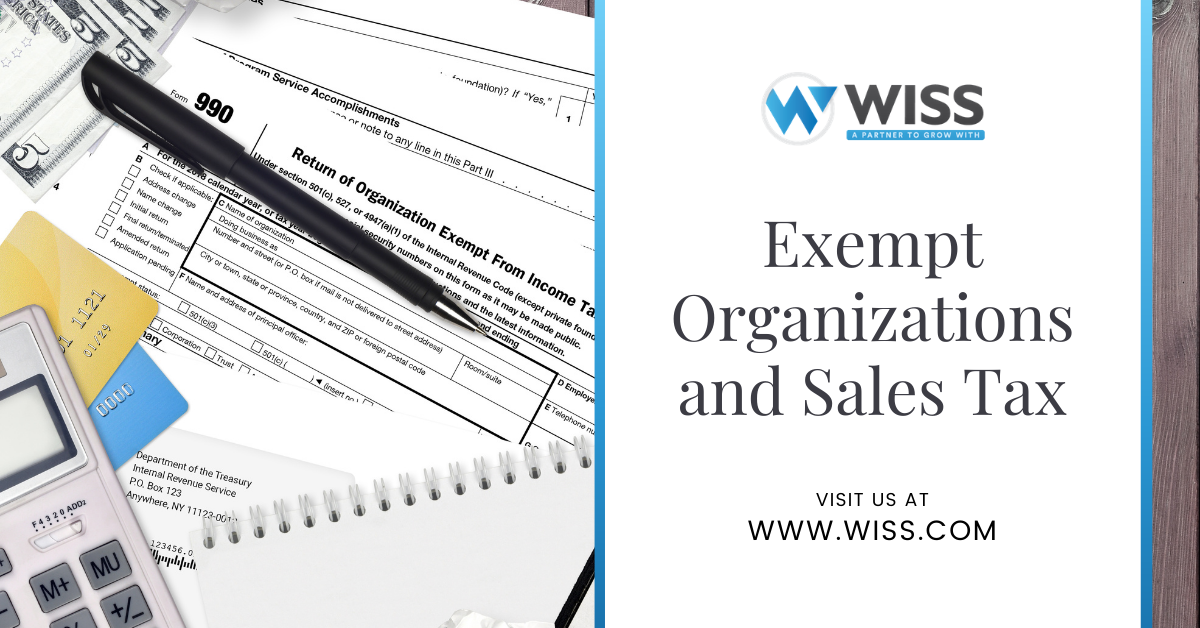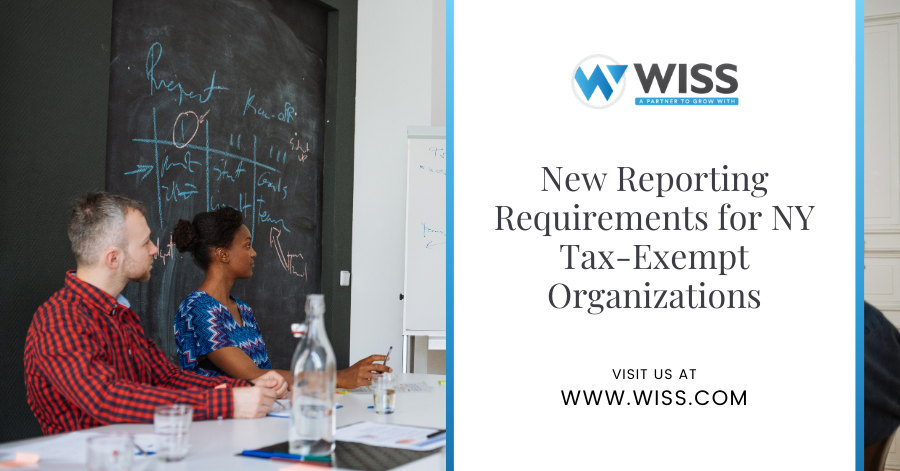By Eitan Balloul, CPA, Tax Manager – Exempt Organizations
Many Tax-Exempt organizations are required to pay or to collect sales tax on certain transactions. Sales tax is governed and applied at the state and local level, which means that each state has its own rules and compliance requirements that will apply to an organization operating within a particular jurisdiction.
Collecting and reporting sales tax is a requirement when selling tangible items or products, similar to any other business that makes retail sales. A Tax-Exempt Organization may be required to remit sales tax collected on these transactions unless a specific exemption exists under the applicable state law.
A Tax-Exempt Organization that engages in multi-state sales activities should consider the following:
- Evaluate whether physical presence nexus has been triggered.
- Determine the availability of state-specific sales tax exemptions.
- Determine if registration with the respective Department of Revenue is required, even if no exemptions are available.
Reporting and compliance
Tax Exempt organization that is registered to collect sales tax must file a sales tax return on a timely basis and remit the collected funds to the appropriate taxing authority.
Upon registration, a state taxing authority will inform the organization of their filing requirement, including frequency and due date for returns. The same due date applies to the electronic submission of the return and payment of the tax.
Some Tax-Exempt organizations may need to pay sales tax on their purchases unless the organization applied and received an exemption. While most states apply the 501(c)(3) exemption to state income tax, that exemption does not automatically apply to exempt state sales and use tax on purchases.
An exempt organization may request a sales tax purchase exemption in the state they are domiciled. They may also do so in other jurisdictions where they conduct business and have established a registration requirement. Generally, the purchase exemption is limited to purchases of items the organization needs to meet its purpose and mission. It is also possible that purchase exemptions may vary from state to state; therefore, an exempt organization may be required to pay sales tax on a particular purchase in one jurisdiction and be exempt in another.
For Example, In New Jersey, the exemption applies to purchases of goods (e.g., office supplies and equipment), motor vehicles, services, telecommunications services, meals, and admissions. The exemption does not apply to: 1. State occupancy fees 2. Municipal occupancy tax 3. Sales Tax imposed on natural gas or electricity purchases.
Currently, five states – New Hampshire, Oregon, Montana, Alaska and Delaware do not impose any general or statewide sales tax collection requirements on goods or services.
Know the Rules
Sales tax rules and available exemptions for Tax Exempt organizations vary from state to state. The state where the organization is domiciled, and its classification are primary factors in determining the exempt status. It is important for the organization to be aware of the state rules to assure proper compliance.
Failure to exercise due diligence could render the organization liable for unforeseen sales tax, interest, and additional penalties.

 Previous
Previous



